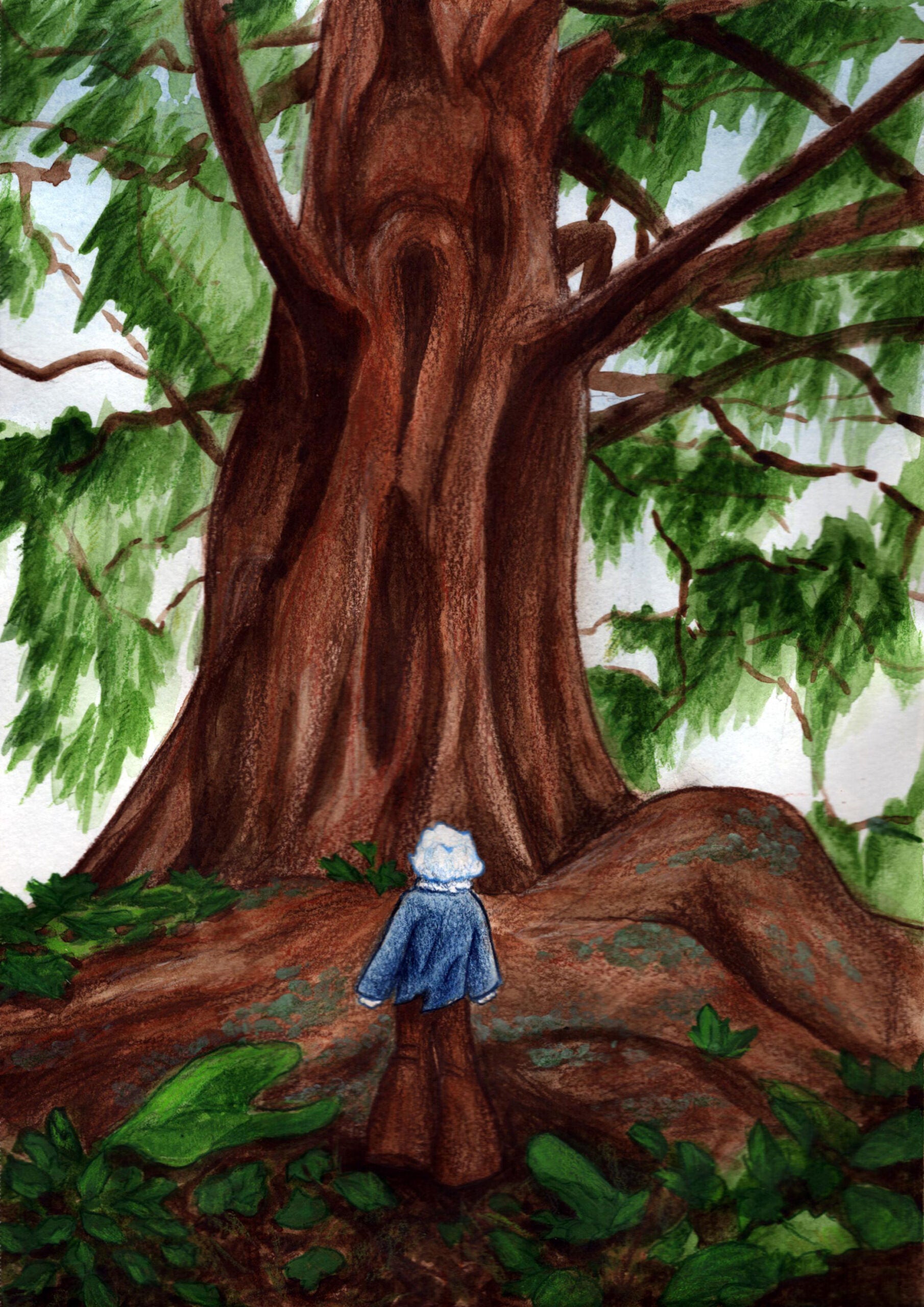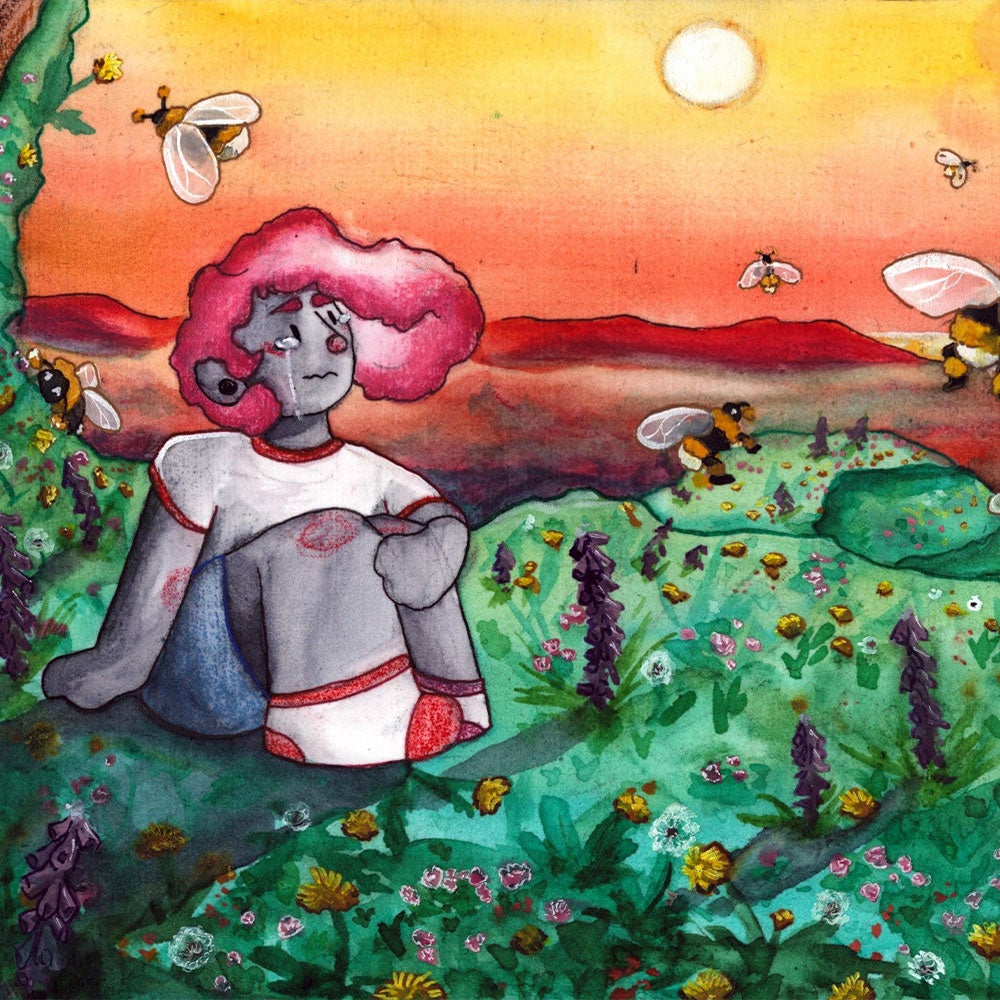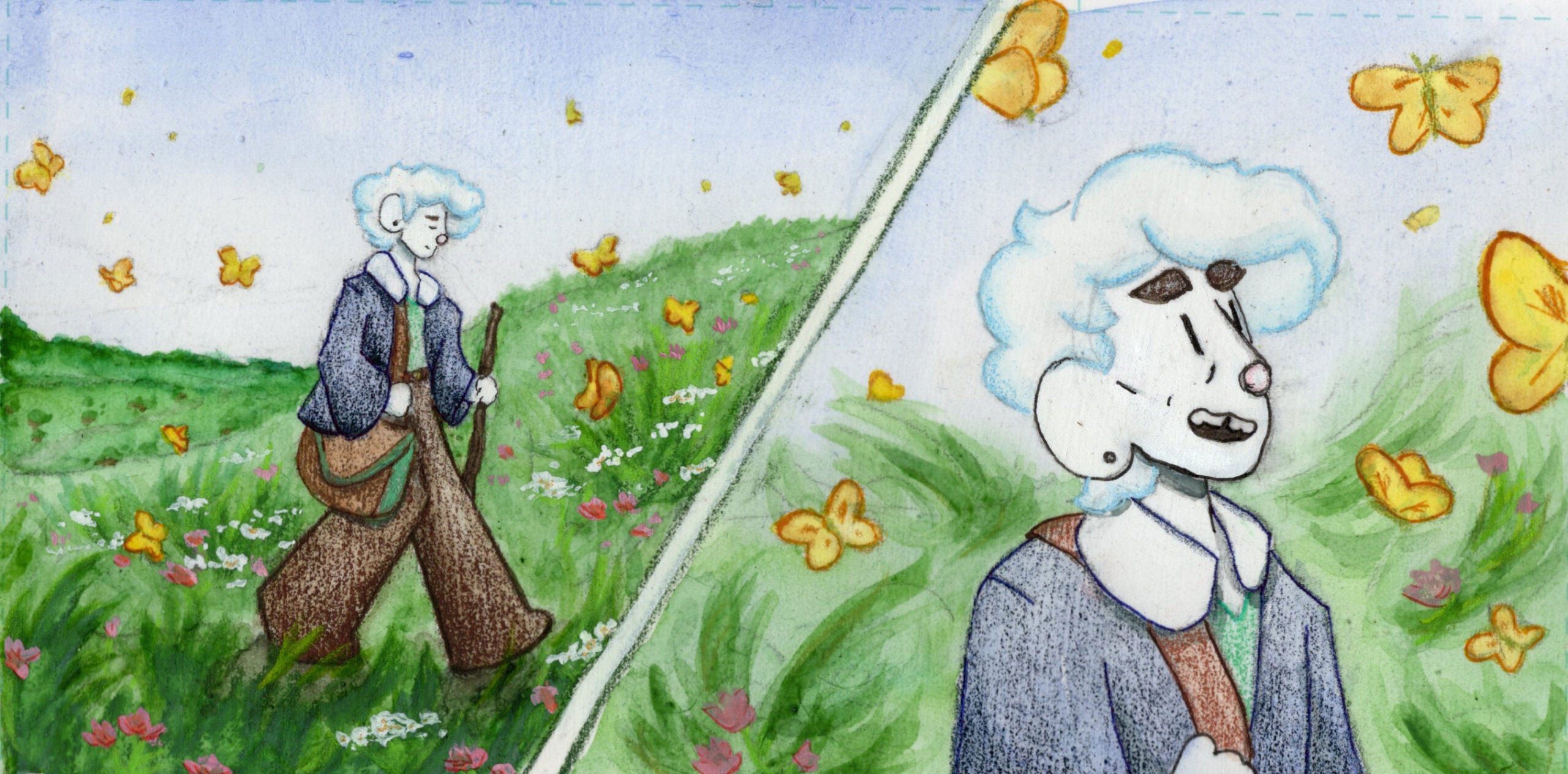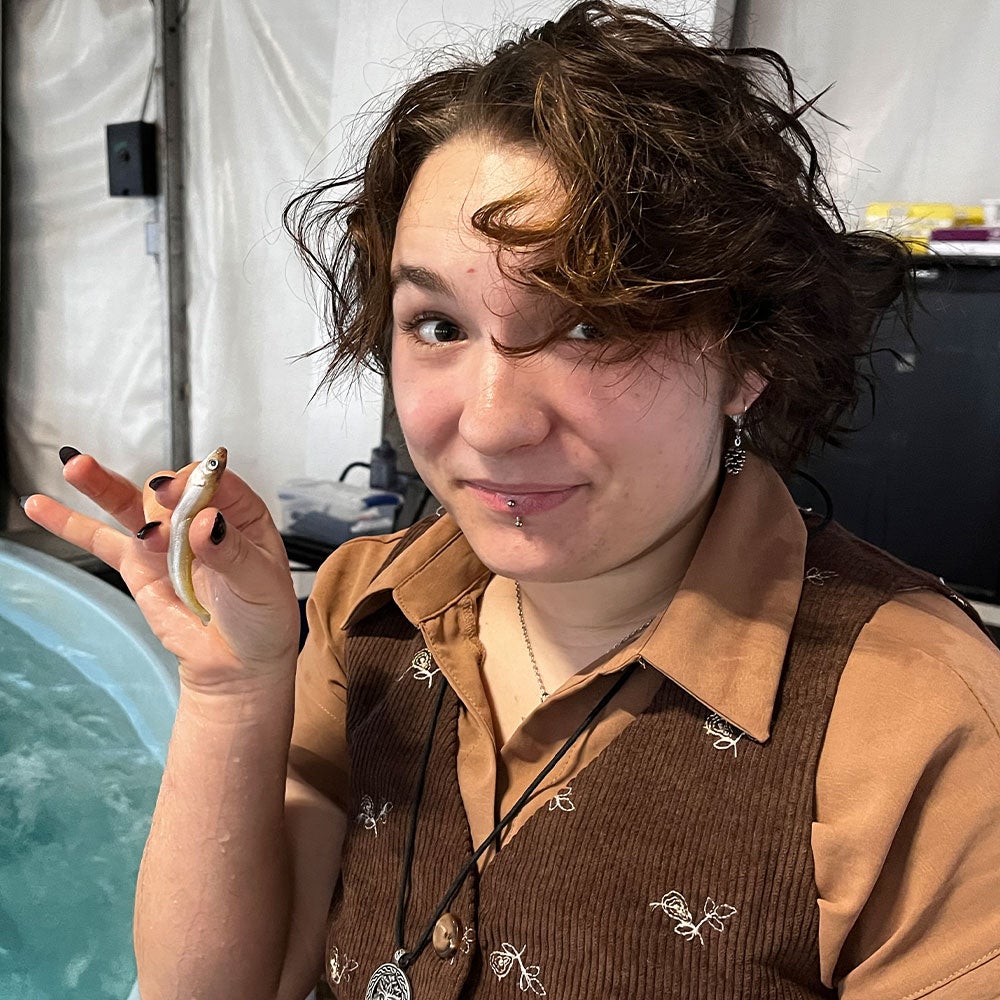Davie Raphael LeClair ‘26, art and environmental education, has a talent for merging storytelling and education in unexpected and creative ways. LeClair came to URI with a penchant for curiosity which has afforded him ample opportunity to grow and explore as an individual and as an artist (via a student fellowship), educator and communicator (via the Rhode Island Agriculture and Food System). LeClair is currently working on his first full length graphic novel.
Did you know that you wanted to study art and or environmental education? How did you develop this double major?
It was an interesting path to get here! I only added environmental education last semester because it’s a brand new major. Last semester was actually the first semester it existed, and it’s been going great so far. Initially, I was really confused on what I wanted to do. I came in as a wildlife conservation biology major and then immediately switched to theatre and then immediately switched to art. It was there that I found my place where I had an idea of what I wanted to do.
Then, the summer going into sophomore year, I received an arts and sciences fellowship, and I got to work on my graphic novel, and that was the greatest opportunity I’ve ever had.
What is your main medium of art and is that something you’ve developed over time?
I do a lot of illustration; I’m mainly a traditional artist in that I don’t really do anything digital. I love watercolor, colored pencil, or gouache. I’ve been interested in children’s book illustrations as well as scientific illustration for years. So it’s really become the forefront at this point in my life because that’s what I see myself doing in the future. I’d really like to get into children’s television, possibly animation. I’m working on my graphic novel right now, and a few other graphic projects as well. So, I’ve really invested myself in this world of hand-drawn illustration. I think there’s something so special to that direct connection you get with traditional art where you can physically see the brush strokes or the pencil strokes.

You’ve mentioned your graphic novel, and that got started with your fellowship in 2023. Could you expand a little bit about what the graphic novel is about and what your process has been like?I love talking about it! The working title right now is “Moon! Moon!” It’s about little vegetable people (they’re named after the vegetables they tend to), and my main character’s name is Cauliflour. He has his little group of friends that all live in a seaside village. The vegetable people are all well-meaning, but not very prone to action. Climate related issues start affecting their village so that the tide starts to rise and it’s affecting all of their crops. None of the other vegetable people feel motivated to address the environmental concern and opt to move. Cauliflour insists that the community should stay and find out what’s wrong and how they can fix it together. So he and his friends go on a journey up the tallest tree in the village because they need to talk to the moon. I don’t want to give way too many spoilers!
What does your role as a Rhode Island Agriculture and Food System fellow entail?
Right now I work with the Cooperative Extension on campus. They do a lot of science-based communication in order to make it more understandable for the community. And that works really well with my art. Currently, I’m creating a couple of different posters and zines to support their research. I’m not good at science, but I can do art about it to help other people understand!

What advice would you give an incoming freshman who has similar aspirations as you?
I think the best advice I could give to somebody is to try not to pigeonhole yourself. Whatever your goal is for the future, you can pick and choose things from all different areas of study that can help you form those connections. For example, I wasn’t in theatre for very long, but there are a couple of things I learned that have been really useful.
For me, it was okay to switch it up and rediscover the things that I really wanted to be doing because I think you have to keep working towards meaning. I don’t think there will ever be a point where you can just arrive at a major or a career or any type of project that you’re doing and think, “This is the only thing that I wanted to do in my life!” I love knowing that you’re constantly forming and evolving into the person you want to become.


